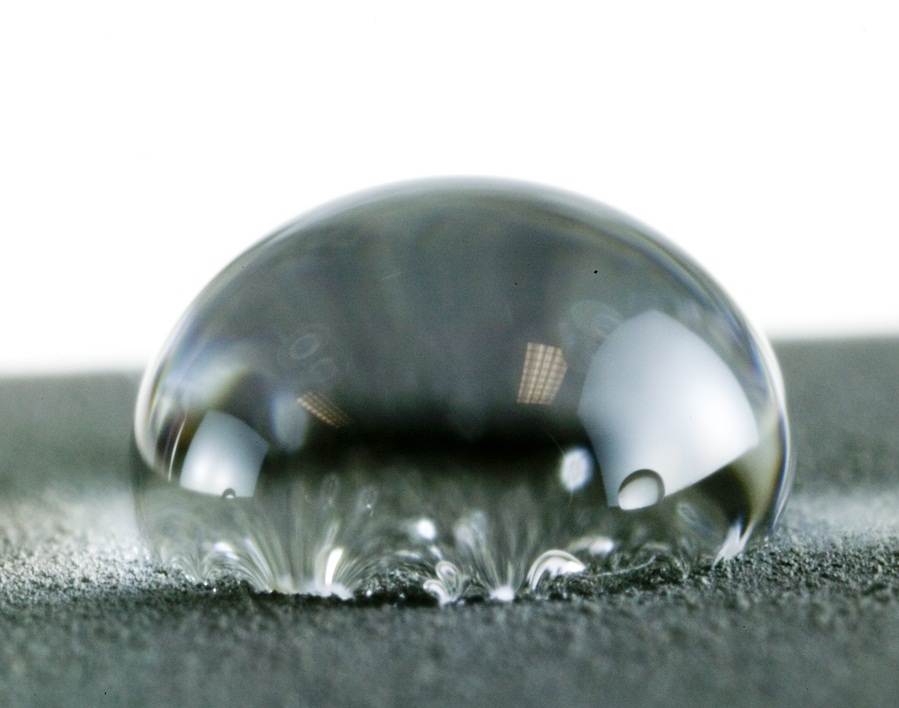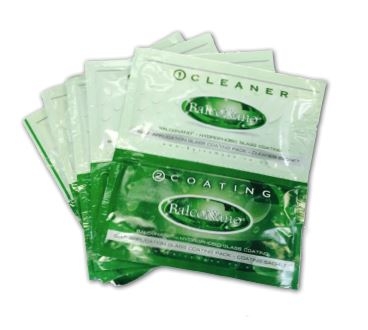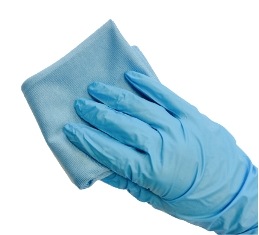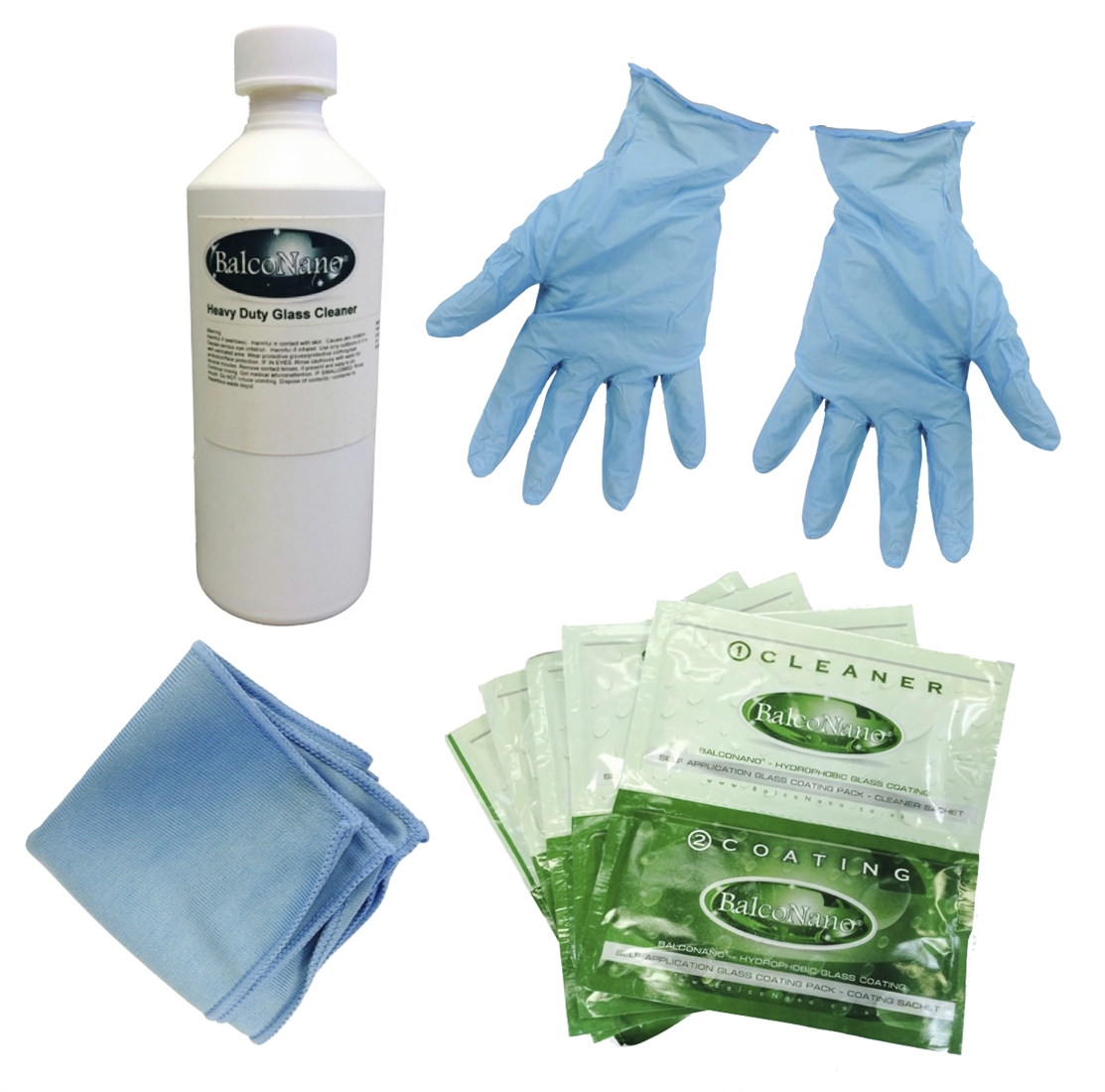Hydrophobic Glass that keeps itself cleaner
Glass Balustrades | Juliet Balconies | Galleries | Articles | Case Studies
Protected surfaces

Glass is in every place in or lives, on the interior and the exterior of our homes - on doors, windows, balconies, solariums, facades of buildings, shower cubicles and many more areas.
Whilst on most other surfaces you find protection; as examples, mild steel is galvanised or powder coated, aluminium surfaces are painted or anodised, concrete is rendered or coated, how come is it that the surface of glass is left unprotected?
Understanding the problem with glass
Have you ever seen stains and streaks on glass that, no matter how hard you try to clean them, cannot be cleaned? What causes glasses on showers to keep getting dirtier and more opaque over time? What is the reason that it appears sometimes almost impossible to clean finger marks from sandblasted surfaces of glass?
If you get up really close and magnify the surface of glass you start to understand why this occurs.
Now glass may seem like it has a smooth surface, however the microscopic surface topography of glass is actually uneven and pitted with peaks and valleys. This surface architecture is the hidden reason behind many glass-related problems.
Glass surface naturally attracts water (hydrophilic), meaning that when water makes contact with the surface of glass the water will tend to spread out and form a thin sheet on the surface. When the water evaporates, all the mineral deposits it contained are left on the surface of the glass. These deposits, which include calcium, salt, heavy metals and a wide range of minerals, together with dust, grime, bacteria, soap scum and a long list of contaminants, embed themselves into these pits and valleys inside the surface of the glass. These elements get lodged, building up over time slowly making the glass surface more and more opaque, dirtier and harder to clean.
This phenomenon is amplified on glasses such as etched or sandblasted glasses; this is because etching or sandblasting will make the surface even coarser, rougher and more prone to this problem than regular glass.
Anyone who has handled sandblasted glass will tell you that removing finger prints or dirt from this type of glass is a real nightmare.
Nature – showing us the way
It is curious how we find in nature some of the most advanced technologies that only in the last few years we, mankind, have been able to copy or imitate.
Some plants and creatures have created a brilliant way of staying clean. For example, we have the lotus leaf that possesses very unique surface architecture; this architecture makes the surface of the leaf super-hydrophobic, which means super-water-repellent. Water that comes into contact with the leaf curls up almost into a ball, leaving an absolute minimum amount of contact with the leaf’s surface. Not being able to cling to the surface of the leaf, the water droplets will cling onto anything else on the surface, namely any dirt or dust. This dirt and dust on the leaf’s surface gets washed off by these droplets leaving the leaf clean.
The solution – advanced glass protection
Inspired by the lotus leaf’s self-cleaning technology we have created a unique and very durable coating for glass that actually transforms the surface architecture of glass, turning it from a hydrophilic (water-attracting) into a hydrophobic (water-repelling) surface.
Introducing BalcoNano® - advanced glass protection.

BalcoNano® works at a nano-scale level – a nanometre is one billionth of a metre, or one millionth of a millimetre (1 millimetre = 1,000,000 nanometres).
The BalcoNano® coating forms a hard, clear and super-smooth surface on the glass, covering entirely these problematic pits, peaks and valleys of the underlying glass surface. It transforms the surface into one that is charged and water-repellent. Water that now comes into contact with the coated glass will not have access to the pits and valleys; water will sit high on the surface and the droplets will tend to curl up and quickly roll away.
Dirt, grime, calcium and other deposits will not be able to embed themselves into the surface and will wash away easily.
Teflon is a good comparison. Just as Teflon protects the underlying metal on a frying pan, so BalcoNano® protects the underlying glass surface.
How is BalcoNano® applied?
BalcoNano® is factory-applied shortly after the glass processing is complete. The glasses are deep-cleaned and then put into an enclosed chamber where they are exposed for a few hours to a series of vapours that form the unique BalcoNano® surface.
The chamber application has an added benefit in that the BalcoNano® surface coating is created simultaneously on both faces of the glass, protecting the glass on the inside and outside at the same time.

Completely different to any manual application, the chamber system is an ultra-efficient method that allows us to process large amounts of glass in every chamber cycle. The process is closely monitored by a computer that constantly checks temperature, humidity and air flow so the resulting coating can be replicated exactly every time.
Using this method we can apply the BalcoNano® coating to the glass on our balustrades, glass Juliet balconies and curved glass double glazed units.
Benefits of the BalcoNano® coating:
What are the benefits of the BalcoNano® coating? And is it worth the extra cost?
Here are some of the benefits:
- Protects the glass from lodging of dirt, grime and other contaminants
- Forms a hard water-repellent surface on the glass
- Reduces required frequency of cleaning between 50% and 90%
- Eco-friendly & pocket-friendly - eliminates need for harsh chemical cleaners
- Increases impact & scratch-resistance
- Makes the glass surface graffiti-proof
- Keeps glass looking NEW for longer
- Completely transparent ensuring your enjoyment of the glass is not limited in any way
- Costing only £25 per square metre for coating to both sides of the glass, can you really afford not to add this?
Can the BalcoNano® coating be applied to existing glasses?

As customers started to recognise the immense benefits of our self-cleaning glass coating, demand quickly followed for an on-site application for other glass products and elements so these too can enjoy the protective assets of the coating.
We rose to the challenge and created a “DIY self-application” pack for on-site application of the BalcoNano® coating.
BalcoNano® can now be applied to glass that is already installed using the sachets system. Each sachet pack contains the required two-part system, a special glass cleaner and the BalcoNano® coating. Each sachet contains a pre-soaked towelette ready for immediate use.
The sachets are designed to be used by the homeowner or professionals alike, enabling the unique coating to be applied to existing glass in doors and windows, conservatories, shower enclosures and much more.
The coating chemistry works just as well on other silica-based products such as ceramics, porcelain, marble and stone. This means the sachets can be used to apply the coating to kitchen tops, sinks, ceramic tiles and many other areas.
Customer feedback on the BalcoNano® coating
Here are some testimonials from a few customers who have ordered the BalcoNano® coating on their balustrades or Juliet balconies.
Rhian and John Powell Jones of Harlech, North Wales, said: “The self-cleaning glass definitely influenced our choice of balustrading as our newbuild house is in an elevated position overlooking the sea. It helps to reduce the amount of cleaning we have to do and it’s easy to look after.”
Nicholas Davies, from Blaenau, Gwent, commented: “We’ve had a lot of work done on the house and, despite this, the Juliette balcony with self-cleaning glass is keeping very clean.”
Peter Morley from Taunton, Somerset, reported: “The self-cleaning glass does stay very clean. In the four months since the Juliette balcony was installed, I’ve not had to clean it.”
Simon Toft, from Cornwall, said: “We chose Balcony Systems for its most aesthetically-pleasing product that looks right for our eco holiday homes. Self-cleaning glass is a bonus as it will mean less cleaning!”
Bryan and Melanie Heslop from Tyne and Wear, said: “Our Juliette balcony overlooks the sea, so the self-cleaning glass means lower maintenance and less cleaning because of the salt air.”
Adrian and Catrin Hughes from West Wales, reported: “We have noticed a difference with the self-cleaning glass coating. Our Juliette balcony keeps a lot cleaner compared to the windows and we keep the countryside views.”
Paul and Margaret Ratcliffe from Sheffield, commented: “We specified self-cleaning coated glass as it really does work; there’s a noticeable difference compared to normal glass. It stays much cleaner as the water runs off it quickly. Being glass, the balcony lets in plenty of light and keeps the garden views.”
Brett and Helena James from Margate, Kent, said: “Despite being close to the sea, we’ve not had to clean the self-cleaning glass panels in the eight months since the balcony was installed.”
Keith and Lorna Wattam from Sheffield, commented: “The Juliette balcony was installed as part of a new bedroom extension and we’ve noticed the self-cleaning glass reduces our need to clean it.”
Summary
As architects, developers, homeowners and self-builders become more knowledgeable and understand the reasons behind glass dirt retention the need becomes apparent for a cost-effective and durable solution.
The BalcoNano® glass coating presents an eco-friendly and durable solution that literally pays for itself; both in saved cleaning frequency & time, plus in eliminating the need for use of expensive chemical cleaners.







